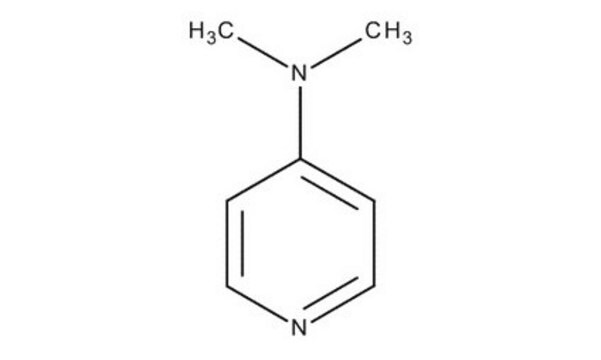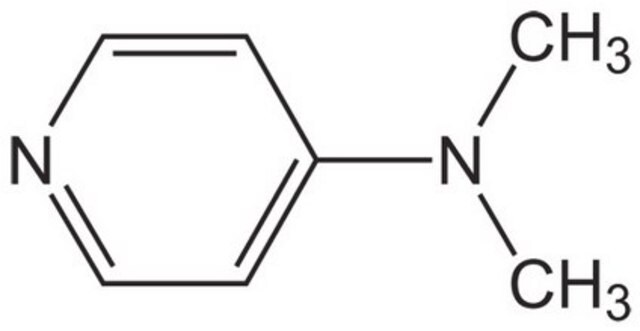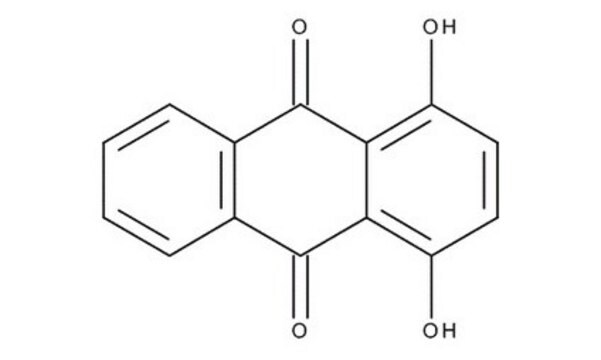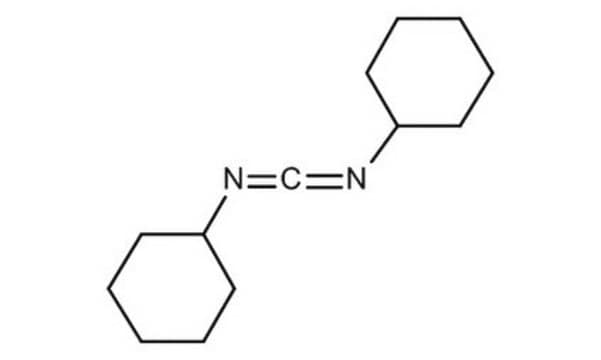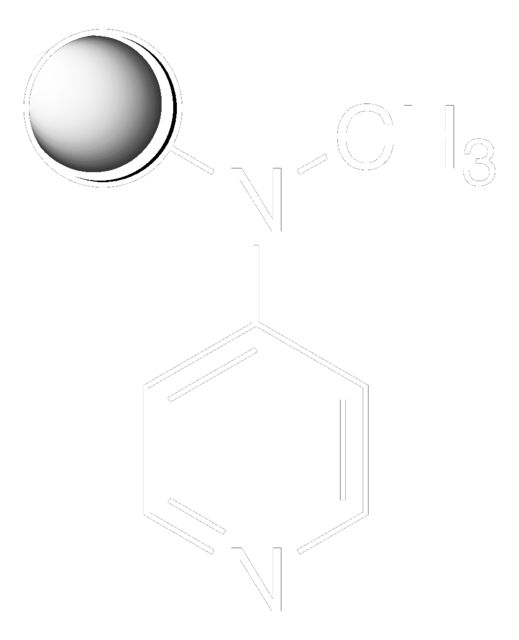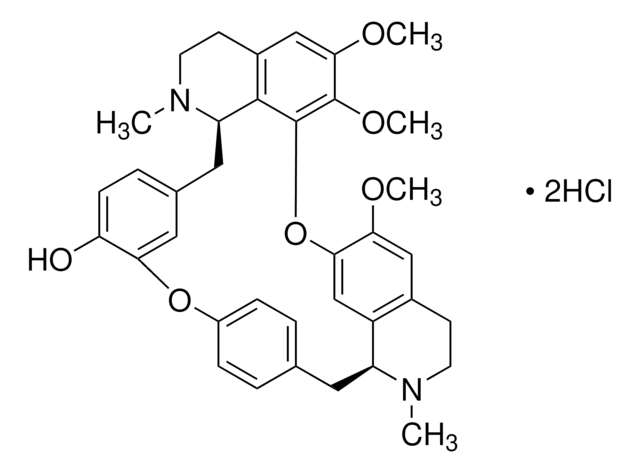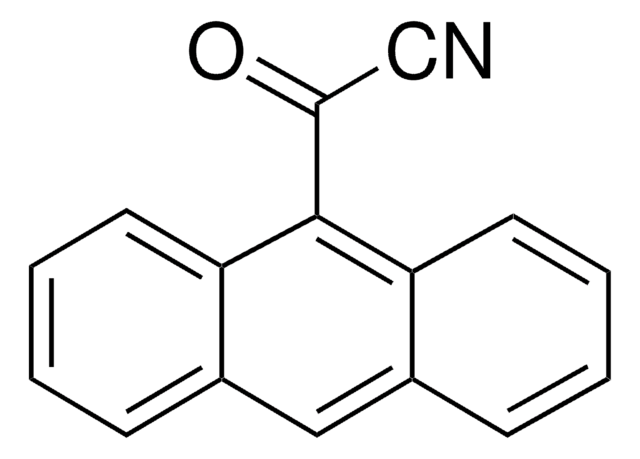39405
4-(Dimethylamino)pyridine
purum, ≥98.0% (NT)
Sinónimos:
N,N-Dimethylpyridin-4-amine, DMAP
About This Item
Productos recomendados
grade
purum
Quality Level
assay
≥98.0% (NT)
form
crystals
pellets
mp
108-110 °C (lit.)
111-114 °C
solubility
methanol: 0.1 g/mL, clear, colorless to almost colorless
functional group
amine
SMILES string
CN(C)c1ccncc1
InChI
1S/C7H10N2/c1-9(2)7-3-5-8-6-4-7/h3-6H,1-2H3
InChI key
VHYFNPMBLIVWCW-UHFFFAOYSA-N
¿Está buscando productos similares? Visita Guía de comparación de productos
General description
Application
- As a capping agent in the preparation of water-soluble gold nanoparticles.
- As an initiator in the polymerization of epoxy monomers.
- As an auxiliary reagent in the electroless preparation of gold nanotubes applicable in catalysis.
- As a catalyst in the preparation of γ- and δ-lactones via iodolactonization of γ,δ-unsaturated carboxylic acids.
Other Notes
signalword
Danger
Hazard Classifications
Acute Tox. 2 Dermal - Acute Tox. 3 Inhalation - Acute Tox. 3 Oral - Aquatic Chronic 2 - Eye Dam. 1 - Skin Irrit. 2 - STOT SE 1
target_organs
Nervous system
Storage Class
6.1A - Combustible acute toxic Cat. 1 and 2 / very toxic hazardous materials
wgk_germany
WGK 3
flash_point_f
255.2 °F
flash_point_c
124 °C
ppe
Eyeshields, Faceshields, Gloves, type P3 (EN 143) respirator cartridges
Elija entre una de las versiones más recientes:
¿Ya tiene este producto?
Encuentre la documentación para los productos que ha comprado recientemente en la Biblioteca de documentos.
Los clientes también vieron
Artículos
In principle, the seemingly simple formation of a peptide bond can be accomplished using all the procedures available in organic chemistry for the synthesis of carboxylic acid amides. However, due to the presence of various functional groups in natural and unnatural amino acids and particularly the requirement for full retention of chiral integrity, the coupling of amino acids and peptides under mild conditions can be challenging. A plethora of coupling reagents has been developed superseding each other in efficiency and suitability for specific applications (e.g., solid-phase peptide synthesis or fragment condensation).
Nuestro equipo de científicos tiene experiencia en todas las áreas de investigación: Ciencias de la vida, Ciencia de los materiales, Síntesis química, Cromatografía, Analítica y muchas otras.
Póngase en contacto con el Servicio técnico
